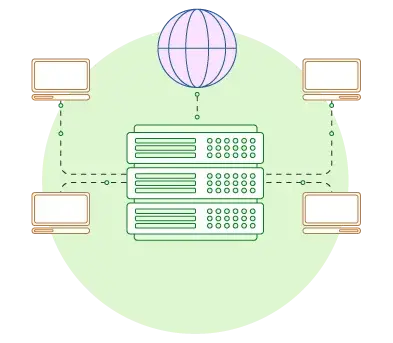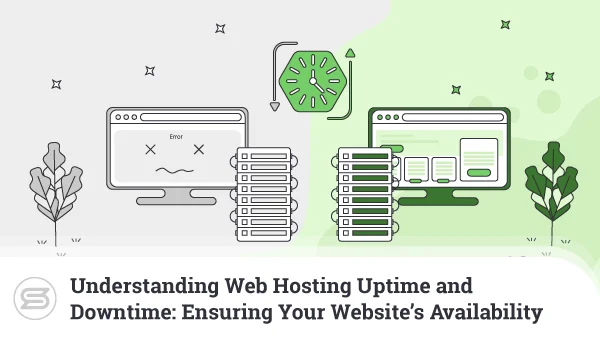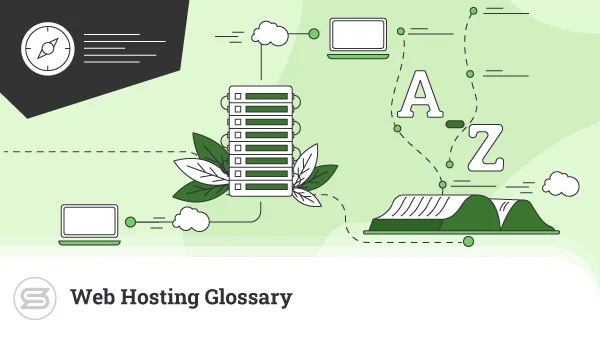What is Shared Hosting and How to Choose the Right one?
What do you need before you start a new website? Generally, a lot of things. But we’ll start from the very beginning – domain name and web hosting.
The domain is the name of your online project. It represents the destination of your web files and tells the server what content needs to be served.
The process of getting a domain is relatively easy. Any provider will let you search for a specific name and show if that property is available. If it is — you are free to go ahead and register it for your business.
So far, so good.
Now, you have to choose a web hosting plan that best suits your needs.
Such a package will secure you a spot on one of the host’s servers as well as a certain amount of CPU, RAM, and bandwidth.
Choosing the right hosting plan depends on how much web space does your website need, how many visits you are getting, or what software do you intend on running.
There are many different kinds of services, coming with all sorts of features and extra benefits. Today, we will be giving you an inside look of shared hosting. This is where we start because this service is the most commonly used among clients. It’s the entry-level into site building and, as such, is very affordable for any type of budget.
What is Shared Hosting?
Shared hosting, as suggested by the name, is when multiple users utilize the resources of the same physical server. If you go for such a plan, you will get a portion of the machine’s CPU, RAM, web space, and bandwidth. This is just the fraction of the total resources, allowing providers to host many users on one server, sometimes even more than a hundred.
Advantages and Disadvantages of Shared Hosting
The nature of the shared hosting service brings in a lot of benefits, but there are some hidden risks as well. Let’s take a look at the most notable.
Advantages
- Low Price — having many people sharing the same servers means they can share its associated costs as well. Shared hosting is the most affordable service you can find.
- Professional Support — hosting providers train their staff into the ins and outs of the products and services at hand. Many times this assistance is 24/7 and through more than one communication channel.
- No Technical Knowledge Needed — you don’t have to be a professional or know how to maintain the server. Shared hosting allows even first-timers an easy way to start building a website.
Disadvantages
- Limited resources – you share CPU, RAM, and disk space with many clients, and if a couple of them are taking too much — this will affect the performance of all users on the same server. Scaling your resources often requires a VPS hosting package, at least.
- Less control – you don’t really have any freedom to tinker with the server settings or install specific software that needs some hosting alterations.
- Weaker security — your online project is as safe as the most vulnerable website on the server. Breaching through a neighboring account can mean damages for you as well.
Before you choose a web hosting plan, you need to clarify your business goals. If you are planning to host a small website, a simple online shop, or a blog with relatively low incoming traffic, then shared hosting is the right choice.


If you need more resources and autonomy, and your business depends entirely on your online presence, it’s best you choose a more advanced solution for your business. This could be a Managed VPS, Unmanaged VPS, or a Dedicated Server.
Final Takes
Hundreds of millions of websites worldwide utilize shared hosting services to run smoothly every day. The first step into the site building industry is often feature-rich, very affordable, and gives enough to power a low traffic page. Still, before you choose your next shared provider, it’s best you do your research in terms of speed, add-ons, customer support, and, of course, cost-effectiveness.



